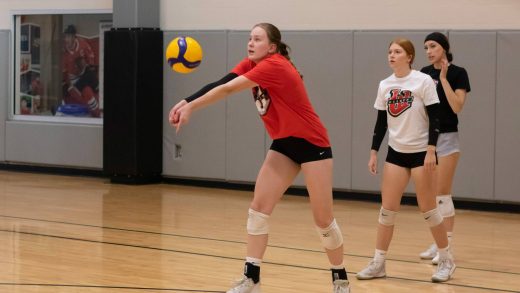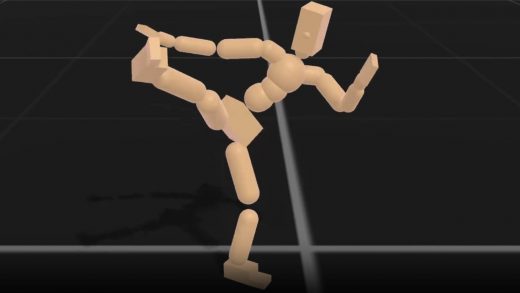:format(webp)/https://www.thestar.com/content/dam/thestar/entertainment/books/2022/11/07/chelsea-manning-on-being-gay-and-trans-in-the-military-and-how-the-wikileaks-expos-almost-didnt-happen/readme_dot_txt.jpg)
In 2010, U.S. army intelligence analyst Chelsea Manning was courtmartialed and sentenced to 35 years in prison for leaking classified documents to WikiLeaks about the country’s operations in the Middle East — from a Starbucks using wonky free Wi-Fi from the adjacent Barnes and Noble bookstore. She served seven years before her sentence was commuted by then president Barack Obama in 2017. Since then, she has made a run for the U.S. Senate, lectured on data and security across the U.S., and now written a book. In “Readme.txt” Manning explains why she blew the whistle, talks about being gay in the military in an era of “don’t ask, don’t tell,” coming out as transgender, and recounts how the leak almost didn’t happen. The Star spoke with her via Zoom.
When you finally deployed to Iraq, you said there was a real disconnect between what you saw going down on the ground and what the media was reporting.
Prior to the war in Iraq, or prior to enlisting in the military, I certainly considered myself to be a very informed citizen and very aware of things. I felt pretty confident that I knew what was going on, and that I had adequate information and adequate context to understand what (was) going on. People often say that I became disillusioned, which is very simplistic. The truth is before I deployed a lot of the veterans who had done at least one tour seemed very tired and they didn’t want to talk about these things. Whenever I would speak, they’d be like, “You have no idea what you’re talking about.” I was very confused. And so whenever I deployed to Iraq it became clear there was this gross cognitive dissonance between the information that people had access to in the public (realm) at home versus what (we were) seeing on the ground and dealing with every single day.
Is that when you decided, what made you want, to share the information?
I think that’s the primary driver. The reason I called this book “Readme.txt” … it’s the name of the document which I had written to go along with the records. This is the complete, up to that point, summary of the information that provides the context and the explanation for the true face and nature of 21st century asymmetric warfare — which is a fancy name for the kind of occupation versus guerrilla-style chaotic insurgency that we were grappling with, wrestling with and contributing to.
Parts of this book actually look as if they’ve been redacted. Why did you include that?
We made a very deliberative attempt to stay within the lines of what we could publish about. It became clear that we weren’t going to be able to get around the idea that, as a former intelligence and military official, I would still fall under (certain) rules. Even though most of the book is … very general … we decided to go through the pre-publication review process to keep ourselves protected. The government asked us to put in these redactions. We obviously wanted to publish the book. So we kept the redactions in to (show) here (are) the parts the government still, even after taking these precautions, removed. I cannot disclose the contents.
Some of the stories you tell are quite poignant, about being gay in the military and trans, and worried that if even one small thing went wrong you’d be fired. You mention Proposition 8 (which aimed to ban same-sex marriage in California) being passed in 2008. What did all of that do to your morale and outlook?
I wasn’t a particularly political person prior to 2008. I like to say that my political views were Leave Britney Alone. I was very pop culture-oriented. I was very into music. I was very into fashion. I’d grown up with the notion, if you’re in the military there’s “wink, wink, nudge, nudge, you’ve got to keep it secret.” Proposition 8 played a role in making me feel like I had a stake in the political system and what society deems acceptable. I had been taught my entire life that … things were progressing, that things would only get better. It was the first awareness that I had a place in the world and that political decisions can impact the people that I care about and the people that are around me. Politicians and political views have an impact on people’s lives.
A lot of this book is very personal, it’s about your childhood and your family. Why did you want to tell that story?
People view me often through the snapshot of a few short months of my life, but the things that have shaped me the most are actually the years before and the years after. I wanted to give people that sense of there being a more whole picture to “Who is Chelsea?” (Now) I operate a security consulting firm and I do university lectures. But I’m a whole person with quite significant, momentous memories from my childhood, and from my time incarcerated and in solitary confinement.
Your experience in solitary confinement was horrific; what you did for trans rights is vast. Is that what you see as being the more important legacy from all this?
I haven’t done my legacy, I’m 34 years old; I’ve got plenty of work to do in the future. The funny thing I often get asked “What do you think of freedom?” It’s quite a shock to, at the age of 29 (when I was released), learn how to get gas, to regain access to my bank accounts, to understand how credit works. I understand a lot of things very academically and I’m very well read, but to have these new, more banal life experiences for the first time — I’ve struggled with it. I learned how to cook because I couldn’t really cook prior to this because I’ve never had the opportunity to do it.
There’s something very profound about the physicality of making something for yourself.
That’s another thing I wanted to try to capture in the book. Yes, I am a data scientist. Yes, I know information and machine learning. But I found a real passion in woodworking. That is another thing (from) my prison experience. I spent three years as a woodworker. I’m proud to know that … my friends often point to different types of furniture and (ask) what’s this made from, and I can point out the wood and how it was made.
With everything that happened, this is sort of closing the pages on that chapter of your life. Did releasing the files, going through what you did, achieve what you hoped?
My goal was for the information to be made public and to be published. The events that happened lived or died in that small coffee shop out in Rockville, Maryland. If I had internet connectivity problems for another 20 or 30 minutes, I was ready to go; I was ready to give up and never attempt to do something like this again. So it almost didn’t happen at all.
JOIN THE CONVERSATION

:format(webp)/https://www.thestar.com/content/dam/thestar/entertainment/books/2022/11/07/chelsea-manning-on-being-gay-and-trans-in-the-military-and-how-the-wikileaks-expos-almost-didnt-happen/chelsea_manning_2019.jpg)



